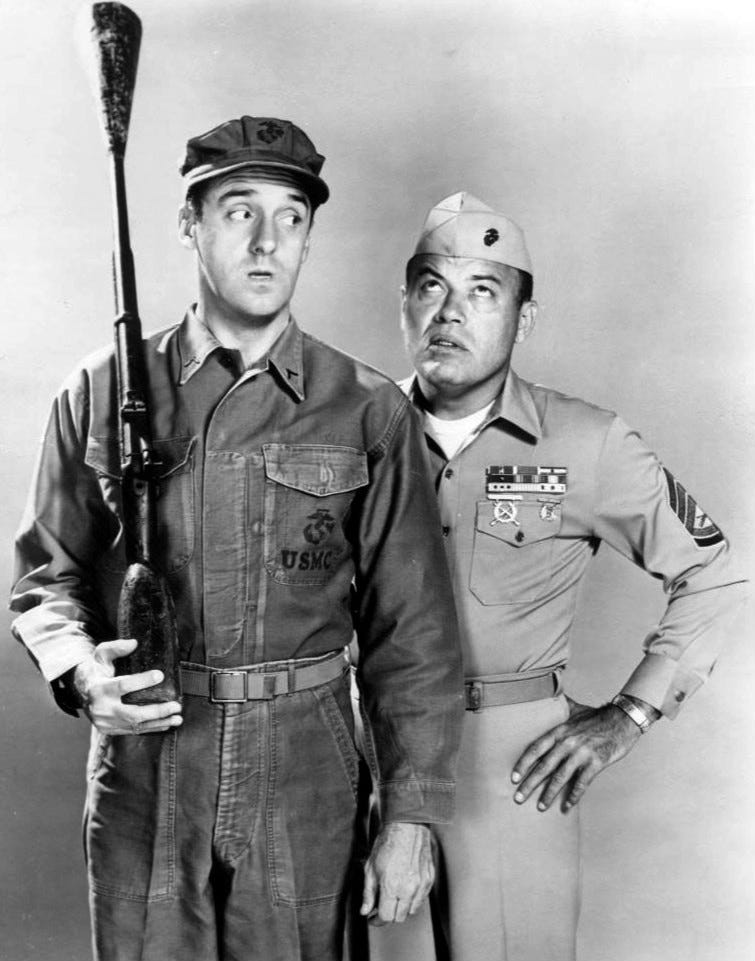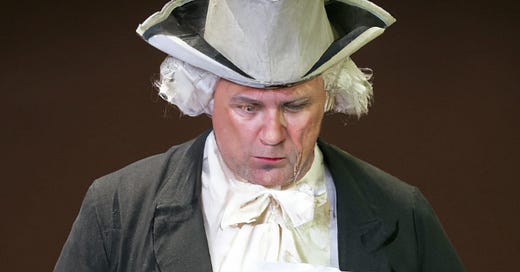Welcome, or welcome back. It’s been a while. My fault.
My German wife knows a lot about culture and context. She’s well-read. She knows a fair bit of Americana, as well. But as with most of her compatriots, the simple prosaic candor of some parts of American life are unknown to her. Take, for example, the peanut-butter-and-jelly sandwich. Essentially unknown in Germany (whence I write).
And while the Germans have imported more than what you might have realized from the glory days of American television, there are some gaping holes. Most of the stuff from the fifties and early sixties is notoriously absent. There’s no Honeymooners with Jackie Gleason, Audrey Meadows, Art Carney, and the other unforgettables. There’s no I Love Lucy! While they do know about Bonanza, Dennis the Menace, Lassie, and even (shock!) Hogan’s Heroes, there’s no Lost in Space. Yes to Captain Kirk. Yes to Barbara Eden and Larry Hagman’s I Dream of Jeannie. Yes to Bewitched, Dallas, and Dynasty, but no to Gilligan’s Island, Andy Griffith, Petticoat Junction, and Green Acres. Mannix and the Rockford Files, two all-time favorites of mine (along with the aforesaid Hogan’s Heroes), did make it over here (I’ve now been corrected). And they love Columbo. They did briefly feature Three’s Company, but the Brady Bunch is unknown. Absent as well are the Addams Family, the Munsters, Dark Shadows, All in the Family, and much more.
The German media industry imports a lot of American-sourced stuff, and there’s a sophisticated voice-dubbing business to handle it based principally in Munich and Berlin. Voice actors follow stars their whole lives long in many cases. They often do a stellar job – such that I sometimes find the voice as natural and compelling as the original. They often do take great care.
Well, but they don’t know about Gomer Pyle, U.S.M.C. For some reason, that came up today in a Sunday reminiscence told to my wife. So, I urged her to watch ten minutes’ worth on YouTube, and she did. Soon I couldn't read the paper in the next room for all the laughter.
Gomer Pyle, starring Jim Nabors and Frank Sutton, ran on CBS for five seasons from September 1964 to May 1969. It quickly captured America’s heart. An insipid (and presumably stolen) one-sentence summary that pops up in too many places runs, “Gomer Pyle joins the Marine Corps and faces several mishaps with Sergeant Vince Carter when he is unable to cope with military life.” The show was a spin-off from the Andy Griffith Show. It retained the homespun affect and appeal. It was produced and directed by Aaron Ruben, also known for Andy Griffith and, later, Sanford and Son. Ruben was the chief writer. Sheldon Leonard and Danny Thomas had uncredited contributions as co-writers.

I told this Gomer Pyle anecdote about my wife’s Sunday delight to a stateside acquaintance. His quipped response was hand-wavy: “Gomer Pyle is from the dirt age” of television. He added somewhat more thoughtfully, “If you told me directly that there has never been anything like Gomer Pyle available in Germany, I would believe you 100%. Perhaps that is part of the appeal for your wife.”
I disagreed, and vehemently so. Gomer Pyle stands for something. The endlessly repeating theme almost always revolves around how a rube who wears his pure-as-gold heart on his sleeve can teach a disciplined and hardened Sergeant Carter something enduring about a deeper meaning to life and the place for emotional vulnerability in reclaiming our childlike innocence. I’d say Pyle is quintessentially American, in that the French and German and English buffoons in skits, stories, and films are there to be laughed at, not with. Pyle always conjures that overly idealized American Happy End. (That’s what the Germans say for "happy ending.")
Gomer Pyle is a microcosm of the American experiment itself in all its sitcom frolic and daring: unsophisticated, unwashed, even brash, but heartwarming and human.
In closing, let me append an observation from my wife just now. Her takeaway is that the Germany of the 1960s was not ready for pure-escapist comedy of the type that Hollywood’s TV studios had to offer. That might well be the case.⬕











Share this post